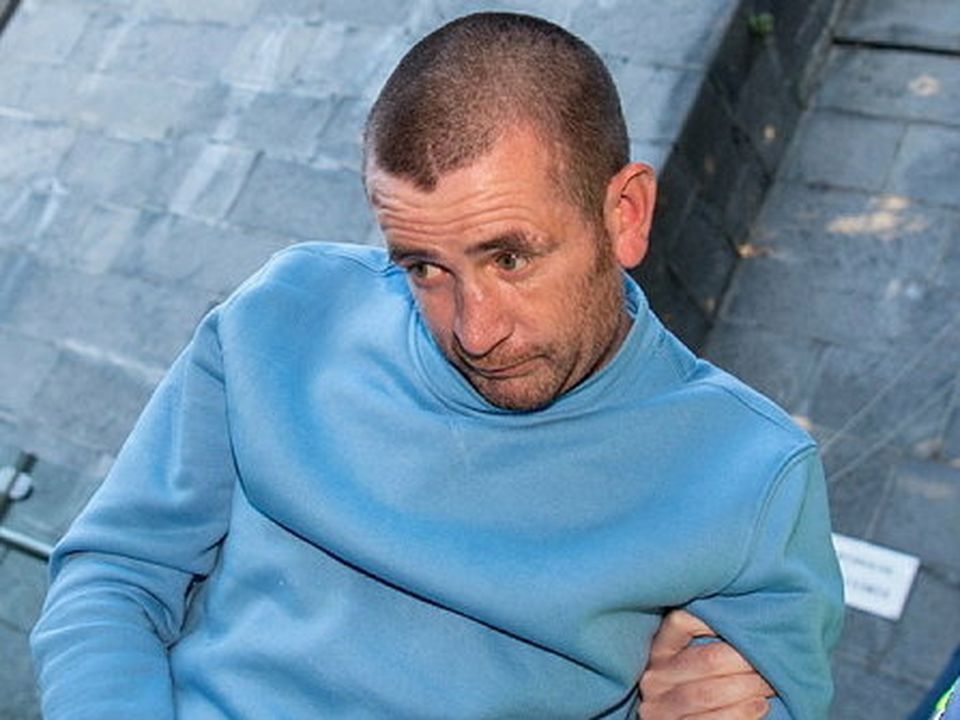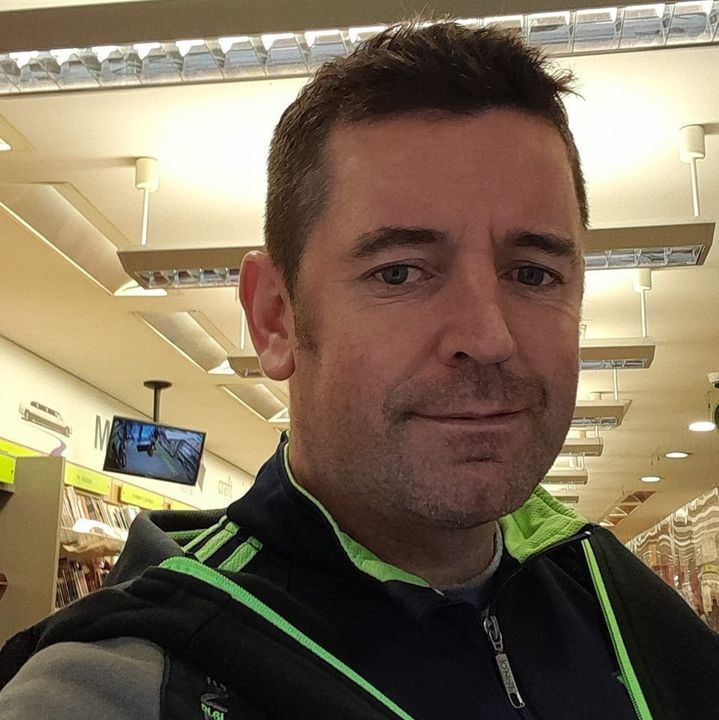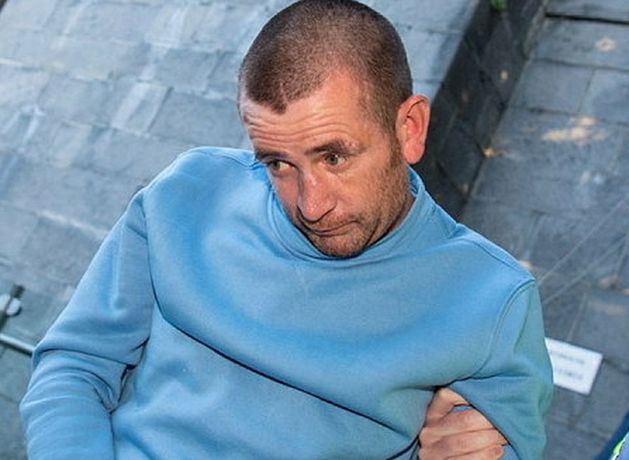Victim was found drenched in blood and would have collapsed quickly, pathologist states
Paudie O’Connor, (42), Caisleán Mór, Castleisland, was found drenched in blood and pronounced dead outside a house where had been living in the early hours of June 28, 2024, the court, sitting in Limerick, was told.
His brother Fergus O’Connor (41), Scartaglen, Castleisland, denies a charge of murdering his sibling. The brothers, who had both been drinking that day, had allegedly fought one another after they had attended a funeral of a cousin.
Assistant State pathologist, Dr Margaret Bolster, gave evidence of having conducted a post mortem on the Paudie O’Connor’s body.
Dr Bolster told the court that Paudie O’Connor died from a single stab wound that firstly penetrated his chest, nicked one of his ribs, and penetrated right through the right ventricle of his heart and into his liver. Dr Bolster, who, it was heard, is a forensic pathologist, said the entire stab wound was “17cm in length”.

Fergus O’Connor
News in 90 Seconds, Friday October 10
Dr Bolster said it appeared from blood-stained footprints found at the scene that Paudie O’Connor walked down stairs at the house following the alleged attack and that he would have “collapsed quickly”.
The pathologist said the results of toxicology tests she performed on the victim’s blood, at autopsy, showed that the level of alcohol in his blood was the equivalent of him being more than five times over the legal limit for driving.
Dr Bolster said, however, that alcohol “did not contribute” to Paudie O’Connor’s death, although she agreed under cross examination that it would have “impaired” his judgement and his reactions at the time.

The late Paudie O’Connor
The cause of Paudie O’Connor’s death was Hemopericardium, where, Dr Bolster explained, caused 250mls of fresh blood to fill Mr O’Connor’s pericardial sac (sac around the heart), which in turn put pressure on his heart and its ability to pump blood.
“The person goes into shock and dies,” she said.
Dr Bolster said that, in her opinion, the weapon used to stab Paudie O’Connor, was “a knife with a single cutting blade”.
There were no other significant injuries to the body, bar a number of “superficial” insignificant bruises and grazes.
Dr Bolster agreed with prosecuting senior counsel, Michael Delaney, assisted by Tom Rice BL, and instructed by the State Solicitor’s Office, County Kerry, that her notes of the death scene were that Paudie O’Connor’s body was “lying on its back, covered by blankets, both arms were in a spread-eagled position, the legs were extended, and the body was heavily bloodstained”.
“A stab wound could be seen on the left of the thorax, the entire body was heavily bloodstained, including the soles of (Paudie’s) feet. Blood was also present inside the house,” Ms Bolster noted.
“The body was heavily blood-smeared, including the face, the thorax of the chest, both lower limbs and feet.”
There were no defensive wounds on the body, she added.
A GP attached to Southdoc said he went to Tralee Garda Station to examine Fergus O’Connor, following his arrest, to certify him fit or unfit to be questioned by investigating gardaí.
Dr Liqua Ali told the court that he found Fergus O’Connor with blood on his face, his hands, and his clothes. Dr Ali said he found no injury on the accused, and that Fergus O’Connor appeared “very anxious and intoxicated”.
The doctor said he certified Fergus O’Connor as being unfit to be interviewed by gardai for a number of hours.
Mark Nicholas, defending, told the court that when blood was washed off of Fergus O’Connor’s face at the garda station it revealed what appeared to be an injury “above his eye, on his forehead”.
Dr Ali said he had not seen this and he agreed with Mr Nicholas that he had not looked under Fergus O’Connor’s shirt where Mr Nicholas alleged there were “injuries” to the accused.
Dr Ali also told the court that he was asked by gardai to go to the murder scene to check for signs of life in Paudie O’Connor, and that when he examined the body he found no trace of life, and declared Paudie O’Connor dead at the scene at 4.20am on the morning in question.
Gardaí told the court that during searches around the house where Paudie O’Connor’s body was found outside, they found two knives, including one in a ditch at the rear of the house and one in a drain on the road outside the house.
Gardaí agreed with Mr Nicholas that the two knives appeared to have been “weathered”, and there a long time.
The court previously heard that in the hours prior to Paudie O’Connor’s death, he and Fergus O’Connor were drinking together in pubs following the funeral of a cousin.
The court has heard that, following his arrest, Fergus O’Connor told gardai that, in the run up to his brother’s death, that Paudie struck him with a fist a number of times and that he retaliated by elbowing Paudie in the face.
Fergus O’Connor, who is represented by Mark Nicholas SC and Caroline O’Connell BL, instructed by Eimear Griffin, Padraig O’Connell Solicitors, Killarney, also alleged in interviews with gardaí that Paudie went at him with a knife and that he took him on in self-defence.
The trial continues next Monday.
